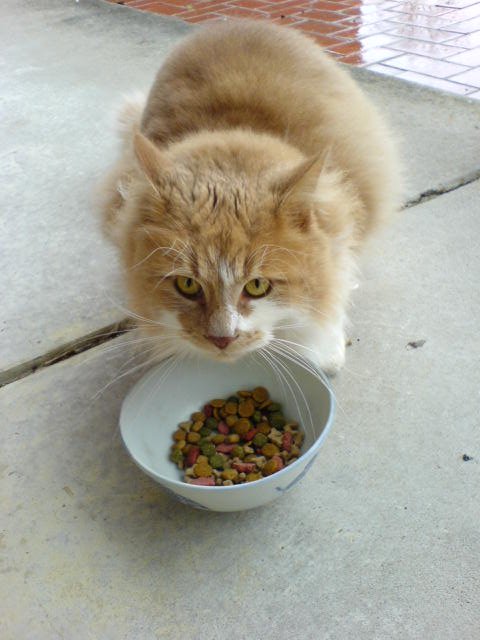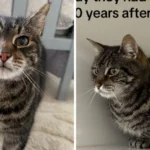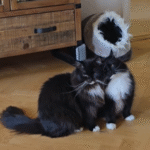Cats, with their mysterious demeanor and enigmatic expressions, can sometimes leave us guessing about their feelings. Although they can’t express themselves in words, their body language speaks volumes. As a cat owner, understanding these unspoken cues can help you gauge when your feline friend might be feeling overwhelmed. Let’s delve into some of the subtle signs that your cat might be trying to convey to you.
Frequent Hiding
One of the most apparent signs that your cat might be overwhelmed is if they frequently hide. Cats are naturally curious creatures, and they love to explore their surroundings. However, if you notice your furry friend retreating to secluded spots more often than usual, it could be a sign of stress. Hiding is a natural response for cats when they feel threatened or anxious. Think of it as their way of pressing the ‘pause’ button on the world. If your cat is spending more time under the bed or in the closet, it may be time to investigate potential stressors in their environment.
Excessive Grooming
While cats are known for their meticulous grooming habits, excessive grooming can indicate that something is amiss. When overwhelmed, a cat might groom themselves to the point of creating bald spots or irritated skin. This behavior is akin to humans biting their nails out of anxiety. It’s their way of trying to soothe themselves, but it can lead to more harm than good. If you notice your cat grooming excessively, it’s essential to address the root cause of their stress.
Changes in Appetite

A sudden change in your cat’s eating habits can be another indicator of emotional distress. Some cats might stop eating altogether, while others might overeat. Much like humans, stress can affect a cat’s appetite in different ways. If your usually ravenous cat has suddenly become a picky eater, it might be worth considering if they’re feeling overwhelmed. Similarly, if your cat is eating more than usual, it might be a coping mechanism for stress.
Increased Vocalization
Cats are typically quiet creatures, but when they’re feeling stressed or overwhelmed, they might become more vocal. If your cat is meowing more than usual, especially in a plaintive tone, it could be their way of communicating discomfort. This increased vocalization can be their way of seeking attention or trying to alert you to something that’s bothering them. It’s essential to listen and observe other behaviors to understand the underlying cause.
Aggression or Irritability
An overwhelmed cat might show signs of aggression or irritability. This can manifest in behaviors such as hissing, swatting, or biting. It’s crucial to approach an agitated cat with care and patience, as their aggression is usually a defense mechanism. They may be trying to protect themselves from a perceived threat or express their discomfort. Addressing the source of their stress can help alleviate their aggressive tendencies.
Lethargy and Withdrawn Behavior
If your cat seems less active or has lost interest in play, it might be a sign of overwhelming stress. Cats are playful by nature, and a lack of enthusiasm for their favorite toys or activities can indicate that something is wrong. Just like people, cats can become withdrawn when they’re feeling down or anxious. If your kitty is spending more time sleeping or lounging around, it might be time to assess their emotional well-being.
Changes in Litter Box Habits
A sudden change in litter box habits is often a red flag for cat owners. If your cat starts urinating or defecating outside the litter box, it could be a sign of stress or anxiety. Cats are creatures of habit, and any deviation from their routine can indicate that they’re feeling overwhelmed. Ensure that their litter box is clean and in a quiet location, as these factors can also contribute to their stress.
Overreaction to Sounds
Cats have sensitive hearing, and loud noises can easily startle them. However, if your cat seems overly jumpy or reacts intensely to everyday sounds, it might be a sign of overwhelming stress. This heightened sensitivity can be a result of anxiety, and it’s essential to create a calm environment for your cat. Providing a quiet space where they can retreat to can help reduce their stress levels.
Unusual Scratching
Scratching is a natural behavior for cats, but if it’s excessive or destructive, it might be a sign of stress. Cats scratch to mark their territory, stretch their muscles, and keep their claws sharp. However, if your cat is scratching more than usual or targeting unusual objects, it could be their way of expressing anxiety. Providing them with appropriate scratching posts and ensuring they have a safe environment can help mitigate this behavior.
Excessive Shedding
While shedding is a normal part of a cat’s life, excessive shedding can be a sign of stress. An overwhelmed cat might shed more fur than usual, leading to noticeable clumps of fur around your home. This can be a result of anxiety or changes in their environment. Regular grooming and ensuring a stable and calm environment can help reduce stress-related shedding.
Understanding these emotional clues can help you ensure your cat’s well-being. By recognizing the signs and addressing the root causes, you can create a nurturing environment for your feline friend. Remember, every cat is unique, and it’s essential to be attentive to their individual needs.

Linnea is a born and bred Swede but spends as much time as possible in Cape Town, South Africa. This is mainly due to Cape Town’s extraordinary scenery, wildlife, and atmosphere (in other words, because Cape Town is heaven on earth.) That being said, Sweden’s majestic forests forever hold a special place in her heart. Linnea spends as much time as she can close to the ocean collecting sea shells or in the park admiring puppies.






